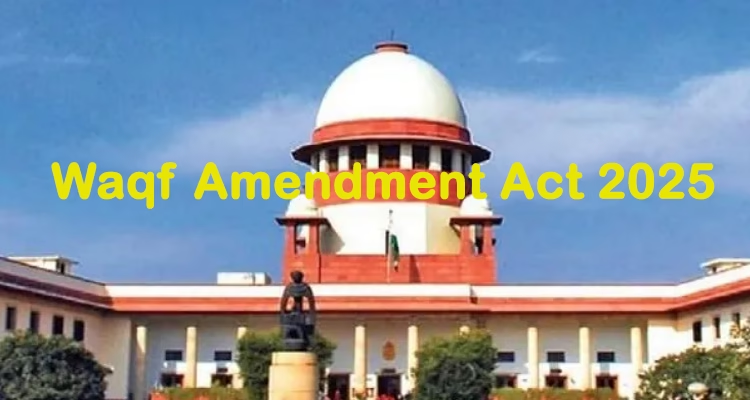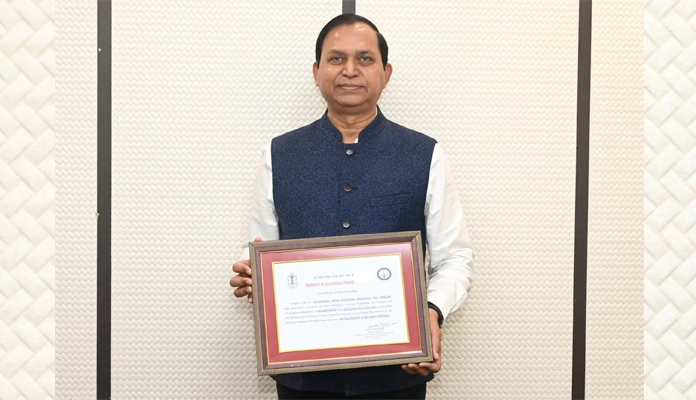
New Delhi: In a significant verdict, the Supreme Court of India (SC) has stayed several contentious provisions of the Waqf (Amendment) Act, 2025, while upholding the overall validity of the law. A bench led by Chief Justice B.R. Gavai and Justice A.G. Masih ruled that certain sections raise serious constitutional questions, particularly concerning the separation of powers and individual rights.
Five-Year Islam Practice Condition Put on Hold of Waqf (Amendment) Act, 2025
The Court stayed the provision mandating that a person must be a practicing Muslim for at least five years before creating a Waqf. It highlighted the absence of any clear mechanism to verify the duration of a person’s religious practice, calling the rule arbitrary and legally unsustainable. The stay will remain effective until state governments develop clear rules for determining compliance with this requirement.
Collector Cannot Adjudicate Waqf Property Disputes
Another crucial provision stayed by the Supreme Court was the one allowing designated government officers, specifically the Collector, to decide whether a property claimed as Waqf is government property. The bench observed that assigning such adjudicatory power to an executive official violates the principle of separation of powers. Until a formal tribunal adjudicates the matter, no third-party rights can be created, and the Waqf’s possession will remain protected.
Limits on Non-Muslim Representation in Waqf Boards
On the composition of Waqf Boards, the Supreme Court ruled that the Central Waqf Council should have no more than four non-Muslim members, while State Waqf Boards must not exceed three non-Muslim members. The Court recommended that, as far as possible, the ex-officio member of the Board should be from the Muslim community. However, it did not stay provisions related to the time limits for registration of Waqf properties.
What Is the Waqf Board?
Waqf Boards are statutory bodies tasked with managing properties donated by the Muslim community for religious, social, and charitable purposes, including mosques, graveyards, educational institutions, shops, and agricultural lands.
Currently, 30 state Waqf Boards manage around 8.7 lakh properties spread across approximately 9.4 lakh acres, with a market value estimated to exceed ₹1.2 lakh crore.
This makes the Waqf Board the third-largest landholding entity in India, after the Railways and Armed Forces.
Stay Limited to Rare Circumstances of Waqf (Amendment) Act, 2025
Chief Justice Gavai underlined that the presumption of constitutionality always favors the law. Stays are granted only in the rarest of circumstances. After thoroughly reviewing the legislative history of Waqf laws from the 1923 Act to the present Amendment, the Court concluded that the case for suspending the entire Act was not proven.
Key Reforms Introduced in the Waqf (Amendment) Act, 2025:
Enhanced Transparency and Digitisation: Mandatory digitisation of Waqf property records to ensure greater clarity and easier public access.
Stronger Oversight Mechanism: Senior officials ranked above District Collector now have a role in resolving ownership disputes over Waqf properties, aiming to reduce arbitrary decisions.
Inclusive Representation: Up to four non-Muslim members—including women—are allowed in the Central Waqf Council to promote broader representation and accountability.
Abolition of Section 40: The controversial provision that allowed Waqf Boards or Tribunals to declare land as Waqf without proper documentation has been repealed, curbing past misuse and ensuring proper legal process.




